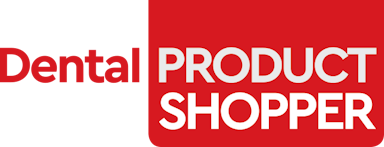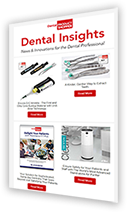
Rebecca Herring is a seasoned dental coach with over 25 years of experience, rooted in a legacy of service that began on humanitarian dental missions with her father in Guadalajara. She is known for her down-to-earth yet results-driven coaching style that empowers dental teams to work in roles that inspire them, creating aligned, high-performing practices built on trust, communication, and clarity. With deep expertise in leadership development, team dynamics, and standard operating procedures, Rebecca equips dental professionals with the tools they need to deliver exceptional patient care while achieving operational excellence. She is also a thought leader in the integration of virtual support systems. As the Director of Healthcare Operations at Rocket Station, she helps practices implement offshore virtual assistants to streamline front-office operations, reduce burnout, and boost productivity—allowing in-office teams to focus on what they do best.
Rebecca currently serves as Vice President of the Denver Dental Practice Leaders Network (DPLN) and is a lifetime member of AADOM, where she earned her Fellowship in 2023, Mastership in 2024, and is on track to achieve Diplomate status in 2025. She is also a member of the Academy of Dental Management Consultants (ADMC), where she collaborates with other industry thought leaders. Outside of her professional work, Rebecca finds joy in outdoor adventures with her husband, Chris, in the beautiful Colorado landscape. Together, they cherish time with their seven children and recently celebrated the arrival of their second grandchild.
I still remember the day I realized how much a simple thank-you card could transform the vibe in our office. It was a busy Wednesday afternoon (though, let's be honest, every day in a dental practice can feel busy). Our lead dental assistant, Serena, stayed late to help organize rooms and prepare trays for the following morning. I was juggling phone calls, insurance verifications, and the endless dance of scheduling. Amid that whirlwind, I took a minute to leave Serena a handwritten note tucked into her locker. I didn't expect much, maybe just a quiet whisper of acknowledgment. Yet when I walked into the break room the next morning, laughter and animated conversation filled the air. Serena was proudly showing that note to the hygienists, and suddenly, the tone of our entire team was different--lighter, warmer, more connected. That moment taught me something fundamental. Appreciation isn't a luxury or a "nice thing to do"; it's the essence of a healthy, thriving practice.
Why It Matters
Over the years, I've spoken with dozens of dental managers, hygienists, receptionists, and insurance coordinators. Time and again, they've shared stories of burnout, feeling overlooked, or simply yearning for a simple nod of recognition. When we take a few moments to notice the people behind the work, the person who stayed late, the assistant who comforted a nervous child, the billing coordinator who calmed an angry patient about their bill, we're doing more than offering praise, we're building an environment where everyone feels valued and connected, as a team, and to a shared purpose.
Research backs up what our hearts already know. Recent data from Gallup shows that workplaces with high levels of employee engagement, often fueled by regular, genuine recognition, are significantly more productive. A 2020 study published in the Harvard Business Review found that highly engaged teams are 17% more productive than their less engaged counterparts in a dental setting. That might mean smoother patient flows, fewer scheduling mishaps, more efficient instrument handling, and small gains that significantly impact production, revenue, and, ultimately, patient satisfaction. Another study from the Society of Human Resource Management showed that practices with strong engagement programs saw turnover drop by almost 60%. Those numbers are hard to ignore. Still, numbers and statistics can feel abstract if we don't connect them to real people.
Ownership That Leads to Empowerment
I distinctly remember another afternoon, about a month after our newest hygiene assistant, Aiden, confided that he felt like a cog in a machine. He'd graduated top of his class, yet he worried his contributions were invisible in our fast-paced office. I asked him to join me for lunch one day and listened as he described his frustration. Rather than offering a generic pep talk, I invited him to co-lead a month-long project focused on improving patient communication scripts. Suddenly, he felt ownership, pride, and a renewed sense of purpose. At the end of that month, we celebrated with a small gathering complete with homemade cookies and a certificate highlighting Aiden's contribution. His transformation wasn't overnight, but I watched his posture change, his interactions with others grow more confident, and his productivity rise. Patients noticed the extra attention to detail, and his enthusiasm energized his team members. So, how do we cultivate an atmosphere where appreciation becomes part of our everyday interactions? It begins with intentional listening. When our front desk coordinator, Ava, noticed a patient's nervousness, she offered a comforting word and a warm blanket without being asked. When we pause to notice that kind of empathy, we recognize it publicly and tie it back to our core mission, providing exceptional patient care. We send a clear message that every act of kindness matters. A quick, "I saw how you handled that situation, and it made a real difference," goes a long way. It doesn't require grand gestures. Sometimes, a thoughtful text message, a chalkboard announcement in the staff lunchroom, spotlighting someone's achievement, or even a shared cup of coffee can show that we see and appreciate people's efforts.
What Is Their Praise Preference?
Of course, genuine appreciation means avoiding empty praise. In dentistry, it's essential to tie recognition to specific actions. Instead of saying everyone is doing a great job, I might say, "Jordan, I noticed how you patiently explained the benefits of the new perio protocol to Mr. Thompson yesterday. Your clarity and compassion eased his anxiety." Those kinds of details show that we're paying attention. They also reinforce the behaviors we value most: clear communication, empathy, and patient-centered care. We also need to consider that different people appreciate different forms of recognition. Some of our dental assistants appreciate public acknowledgment in front of the team. Others might prefer a quiet, one-on-one conversation, where they can share what's on their mind. Over the years, I've learned to simply ask questions. How would you like to receive feedback? Or when you do something you're proud of, what makes you feel noticed?
When people feel heard, seen, and valued, they show up with energy, passion, and creativity. They talk to each patient with genuine warmth. They collaborate seamlessly, and they stay loyal when challenges arise. In contrast, a culture where appreciation is scarce can breed resentment, high turnover, and mediocre patient experiences. If you're wondering where to begin, start small. Take someone aside and ask how they're feeling, their challenges, and what would make their day a little easier. When you hear the answer, acknowledge it and let them know you're listening. Celebrate daily successes, even if it's just finishing on time without hiccups or making a nervous patient crack a smile. Encourage team members to praise each other, because peer-to-peer recognition is often the most authentic. And remember, appreciation isn't a box to check; it's an attitude that performs and transforms every moment, big or small. In my years as a dental manager, I've come to understand that gratitude fuels engagement, reduces turnover, and creates a ripple effect that reaches every patient who walks through our doors. When we appreciate our team with genuine words, thoughtful actions, and meaningful growth opportunities, we're not simply acknowledging their hard work; we're inviting them to co-author a culture of excellence, empathy, and joy. So, the next time someone on your team goes the extra mile, whether it's calming a frightening child, catching a billing error before it affects a patient, or simply offering a hug of support… pause, and let them know their efforts matter. Write that note, pick up the phone, and host that lunch because it's behind every dental procedure. Every bright smile you create. There's a dedicated person who deserves to be appreciated, and that might be the most potent prescription for success any of us can offer.




